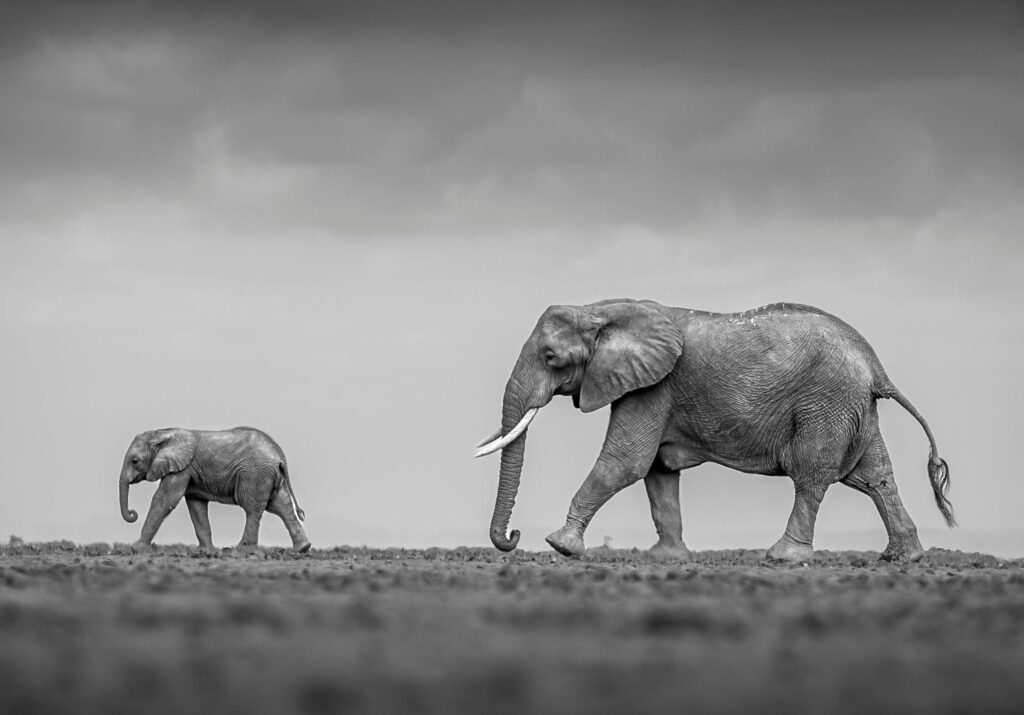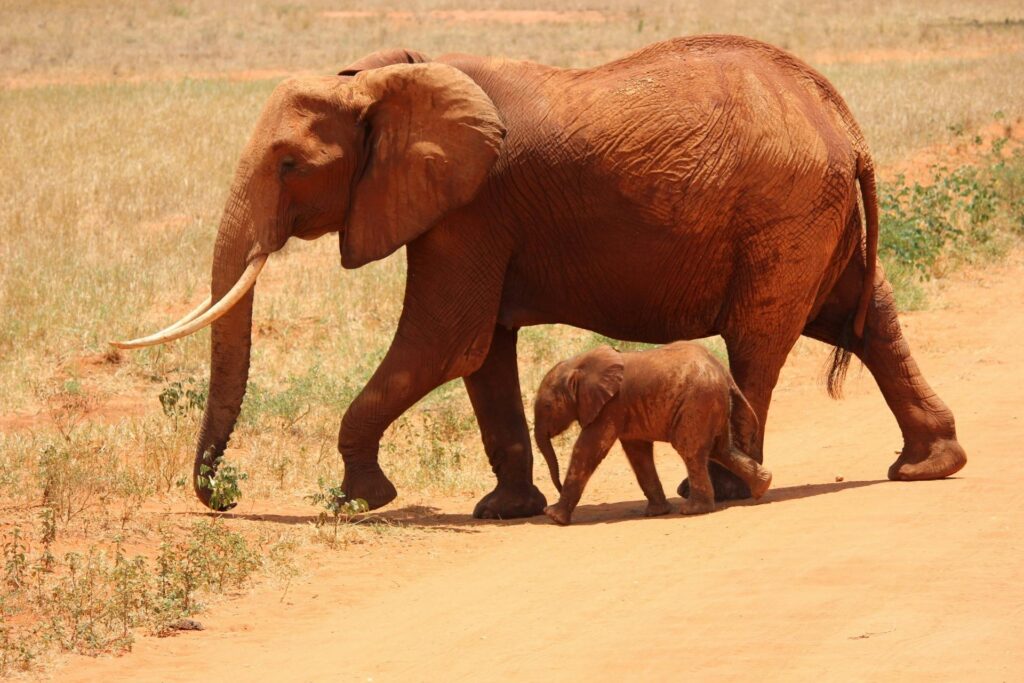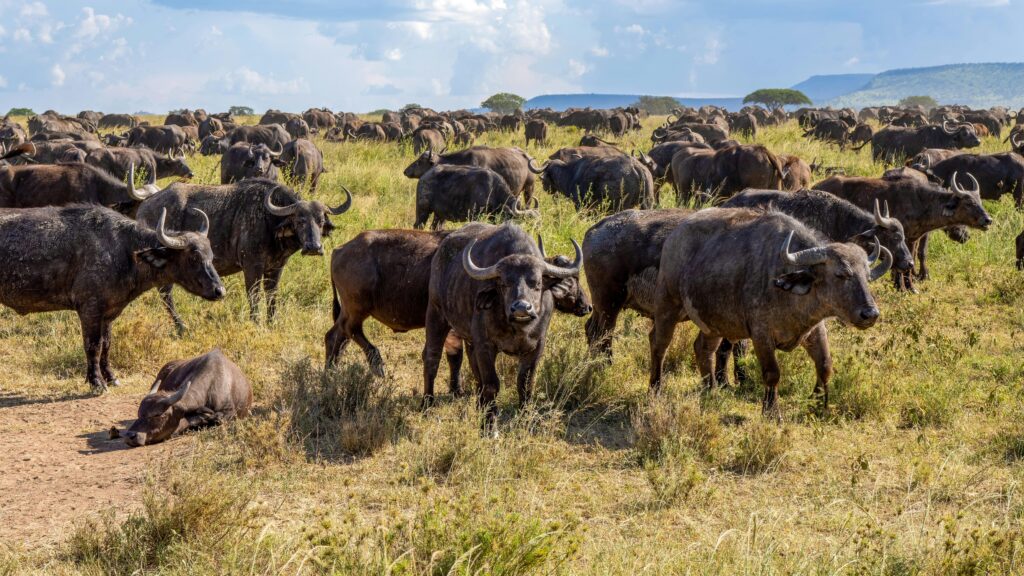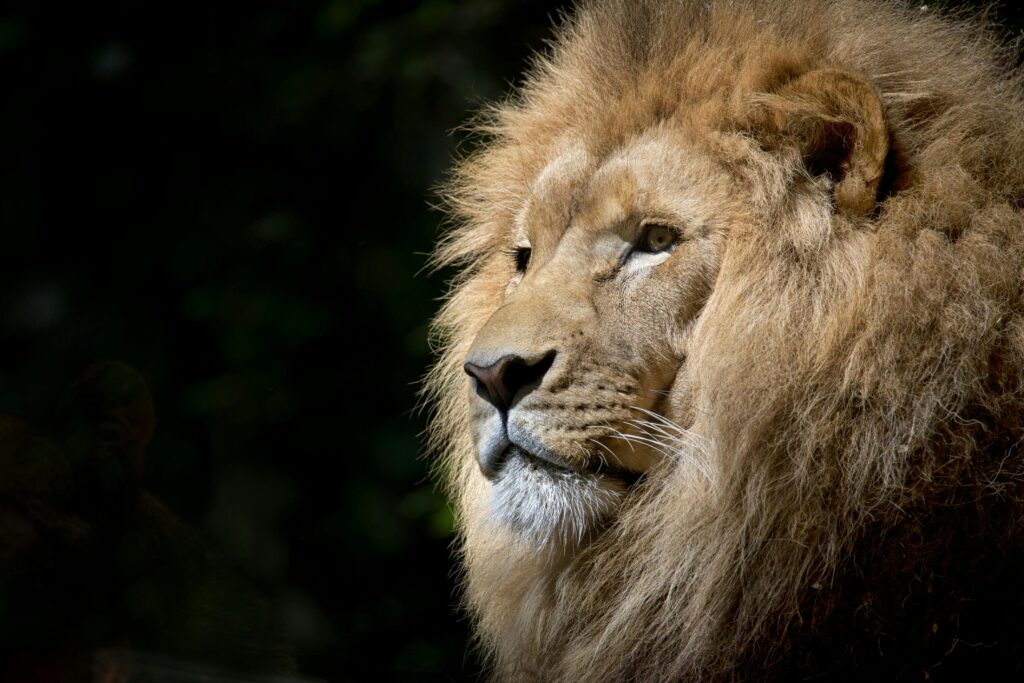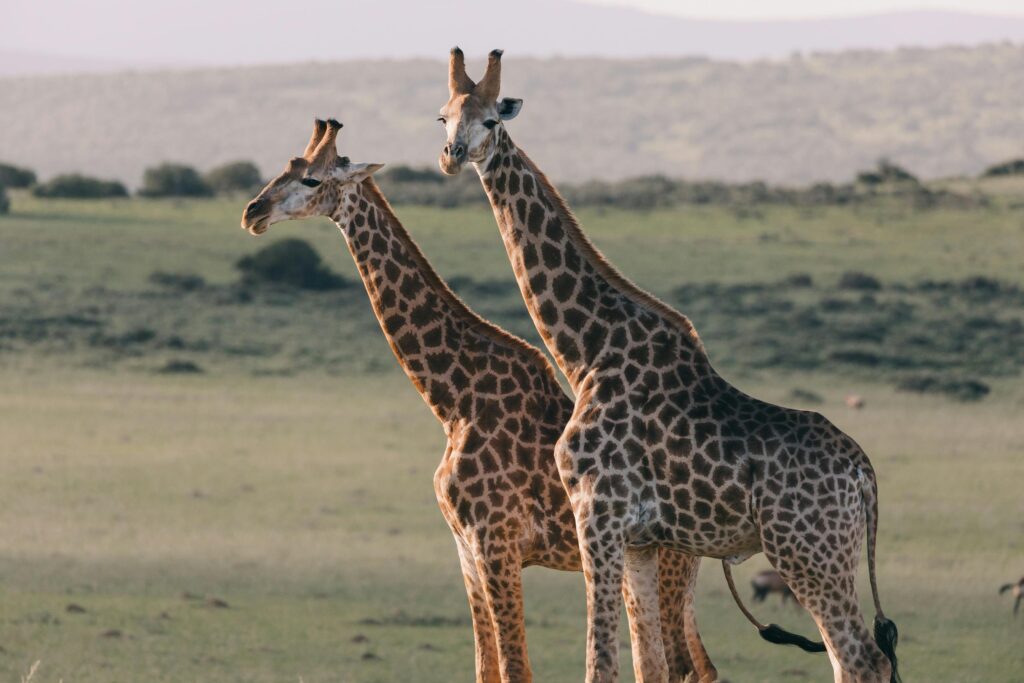Welcome to MasaiMaraSafaris.co.ke, your comprehensive guide to experiencing the wonders of Masai Mara. Whether you’re planning a luxury safari in Kenya, seeking wildlife tours in Kenya, or looking for a more authentic cultural safari experience, Masai Mara offers something for every traveler. This guide covers everything you need to know about Masai Mara Safaris, from the best times to visit, the iconic Great Migration, and the diverse range of safaris available, to practical travel tips and where to stay for an unforgettable adventure.
Why Masai Mara?
Masai Mara is one of Africa’s most famous and sought-after safari destinations. It is home to an extraordinary array of wildlife, including the Big Five: lions, leopards, elephants, buffalos, and rhinos. The landscape is a classic African savanna that stretches across rolling grasslands, dotted with acacia trees and bordered by the Mara River.
The Great Migration is perhaps the Mara’s most famous attraction, where over 1.5 million wildebeest and hundreds of thousands of zebras and gazelles migrate in search of fresh grazing. This natural spectacle draws wildlife enthusiasts, photographers, and adventurers from around the world, making Great Migration wildlife safaris a bucket-list experience.
Types of Safaris in Masai Mara
1. Luxury Safari in Kenya
If you’re looking for a high-end experience, luxury safaris in Kenya are available with private guides, exclusive lodges, and private safari vehicles. You can enjoy luxury mobile camps, stay in luxury hideaway lodges, or choose bespoke safari itineraries that allow you to experience the Mara in the utmost comfort. For those wanting an intimate experience, private reserve safaris offer exclusive access to wildlife-rich areas.
2. Guided Safari Expeditions
For first-time visitors and seasoned adventurers alike, guided safari expeditions provide expert knowledge of the wildlife and ecosystems of the Mara. With a seasoned African adventure tour guide, you can experience close encounters with wildlife and gain deeper insight into Maasai culture.
3. Cultural Safaris
Cultural safaris offer an immersive experience into the rich traditions of the Maasai people. You can take Maasai cultural tours, visit Maasai villages, and even join traditional medicine workshops. These safaris provide a chance to witness the nomadic life of the Maasai, learn about their healing practices, and create lasting memories through Maasai jewelry making workshops.
4. Wildlife Photography Safaris
For photography enthusiasts, wildlife photography safaris in Masai Mara provide endless opportunities to capture breathtaking moments. You can join wildlife photography masterclasses, or opt for bird photography tours to document the diverse species of the Mara, from the famous Big Cats to the elusive endemic birds of Masai Mara.
5. Eco-Friendly Safaris
Masai Mara offers an array of eco-friendly safaris, including solar-powered safaris and plastic-free safaris. For the eco-conscious traveler, carbon neutral safaris and zero-waste travel are excellent ways to experience the wild while minimizing your environmental impact. You can also contribute to conservation efforts by joining conservation fund safaris that support wildlife and habitat preservation.
6. Adventure Safaris
For thrill-seekers, Masai Mara is not just about traditional game drives. You can embark on extreme adventure safaris, including zip-lining, rock scrambling, and even trail running safaris through the wilderness. Hot air balloon safaris offer an exhilarating way to witness the migration and the vast expanse of the savanna from above.
Wildlife in Masai Mara
1. The Big Five
One of the main draws of a Masai Mara safari is the opportunity to see the Big Five. You’ll have the chance to witness lions, elephants, leopards, buffalos, and rhinos in their natural habitat. Big cat safari experiences are especially popular, with dedicated predator conservation safaris allowing you to follow prides of lions or track elusive leopards.
2. Great Migration
The Great Migration is the most iconic event in the Mara, with hundreds of thousands of wildebeests, zebras, and gazelles making the perilous journey across the Mara River. Safaris timed during this migration offer spectacular views of river crossings where predators like crocodiles lie in wait.
3. Birdwatching in Masai Mara
Masai Mara is also a birdwatcher’s paradise. With over 450 species of birds, including raptors, waterfowl, and endemic birds, birdwatching safaris in the Mara offer plenty to marvel at. Many travelers join bird photography tours to capture images of majestic species like the African fish eagle or the lilac-breasted roller.
4. Rare Wildlife and Conservation
Masai Mara is home to a host of rare and endangered species. Endangered species monitoring safaris allow you to observe efforts to protect the last remaining populations of black rhinos. You can also participate in anti-poaching safaris, where travelers learn about the measures being taken to stop illegal wildlife trafficking.
Family Safaris in Masai Mara
Masai Mara is an ideal destination for families. Family wildlife safaris cater to groups of all ages, with activities such as kid-friendly safari activities, multi-family safaris, and even baby-friendly safaris ensuring everyone enjoys their adventure. For older children and teenagers, educational safaris are a great way to combine learning with adventure. Many safaris offer special experiences like family photography safaris or wilderness navigation tours, allowing families to bond while exploring the wild.
Where to Stay in Masai Mara
1. Luxury Lodges and Camps
From luxury safari lodges to eco-lodges, there are plenty of accommodation options that blend luxury with adventure. You can opt for luxury mobile camps that offer an immersive experience in the heart of the wilderness or stay in a secluded safari retreat for a more private experience.
2. Eco-Friendly Accommodations
For travelers committed to sustainability, eco-lodges and green energy camps offer a way to enjoy your safari responsibly. These accommodations minimize environmental impact while providing a comfortable base from which to explore the Mara.
3. Family-Friendly Stays
For families, many lodges provide accommodations tailored to younger travelers. Multi-family safari lodges ensure that all members, from toddlers to grandparents, are catered for. With amenities like childcare services, families can relax and enjoy their time in the wild.
Tips for Planning Your Masai Mara Safari
- Book Early: Whether you’re after last-minute safari deals or planning months in advance, it’s essential to secure your spot, especially during peak seasons.
- Choose the Right Safari: Decide whether you want a luxury experience, a cultural immersion, or a conservation-focused safari.
- Pack Smart: Essentials like proper clothing, safari gear, and camera equipment are must-haves. Refer to our detailed packing guide for more tips.
- Consider Travel Insurance: Travel insurance is a crucial part of your safari planning to protect against unexpected cancellations or health emergencies.
Conclusion
Masai Mara safaris offer an extraordinary way to experience Kenya’s wildlife, culture, and landscapes. Whether you’re after an adventure-filled wilderness expedition, a luxury safari with private chefs, or a meaningful eco-tourism experience, Masai Mara has it all. Start planning your unforgettable safari today with MasaiMaraSafaris.co.ke, where we bring the best of the Mara right to your fingertips. Let the adventure begin!
Frequently Asked Questions About Masai Mara Safaris
1. What is the best time to visit Masai Mara for a safari?
The best time to visit Masai Mara is during the dry season, from July to October, which coincides with the Great Migration. During this time, wildlife is more easily spotted around water sources, and the iconic river crossings are at their peak. The wet season (November to June) is excellent for birdwatching and viewing lush landscapes, but wildlife can be harder to find due to dense vegetation.
2. What is the duration of a typical Masai Mara safari?
A typical safari in Masai Mara lasts between 3 to 7 days. For a more immersive experience, many travelers opt for longer itineraries that include multiple game drives, cultural tours, and exploration of nearby conservancies. Shorter 3-day safaris are ideal for first-time visitors, while longer stays provide more opportunities to witness unique wildlife behavior and diverse landscapes.
3. How do I get to Masai Mara from Nairobi?
You can travel to Masai Mara from Nairobi by road or air. A road trip takes around 5 to 6 hours and offers scenic views of the Great Rift Valley. Alternatively, daily flights from Nairobi’s Wilson Airport to airstrips in the Mara take about 45 minutes, offering a faster and more convenient option.
4. What should I wear on a Masai Mara safari?
It’s essential to wear lightweight, neutral-colored clothing that blends into the natural environment. Long-sleeved shirts and pants help protect against the sun and insects. Layering is recommended as temperatures can vary greatly between early morning and evening game drives. Don’t forget a hat, sunglasses, and comfortable walking shoes.
5. Is it safe to go on a walking safari in Masai Mara?
Yes, walking safaris in Masai Mara are safe when accompanied by experienced guides. These guides are well-versed in animal behavior and will ensure your safety while providing in-depth knowledge about the flora and fauna. Always follow the guide’s instructions during the walk to avoid unnecessary risks.
6. Can I visit Masai Mara with children?
Absolutely. Masai Mara is a family-friendly destination, offering family safaris and activities designed for children of all ages. Many lodges provide special accommodations for families, such as kid-friendly safari activities and professional guides who engage younger travelers in educational wildlife experiences.
7. What type of currency is accepted in Masai Mara?
The local currency in Kenya is the Kenyan Shilling (KES), but most lodges, camps, and tour operators accept U.S. Dollars (USD), Euros (EUR), and major credit cards. However, it’s advisable to carry some Kenyan Shillings for small purchases or tips for local guides and staff.
8. What vaccinations are required for a Masai Mara safari?
Before visiting Masai Mara, you should consult your doctor for advice on vaccinations. Common recommendations include yellow fever, typhoid, hepatitis A and B, and tetanus. Malaria prevention is crucial, so consult your healthcare provider for anti-malarial medication and consider using insect repellent during your safari.
9. Are drones allowed during a Masai Mara safari?
No, the use of drones is strictly prohibited in Masai Mara without special permissions. This restriction is in place to protect wildlife and ensure the safety of visitors. If you’re interested in aerial photography, consider alternatives like hot air balloon safaris or contacting local authorities to explore possible exceptions.
10. How do I choose the right tour operator for my Masai Mara safari?
When choosing a tour operator, consider factors such as their reputation, the range of safari packages offered, and their commitment to sustainability and responsible tourism. It’s advisable to check reviews, ensure the operator is licensed, and confirm that they provide qualified guides familiar with the local ecosystem.
11. Do I need a visa to visit Masai Mara?
Yes, travelers to Kenya typically need a visa. Most nationalities can apply for an eVisa online before arrival. The visa allows entry into Kenya for tourism purposes and is generally valid for 90 days. Always check current visa requirements as they may change.
12. Is tipping expected in Masai Mara?
Tipping is appreciated in Masai Mara, especially for safari guides, drivers, and lodge staff. While tipping is not mandatory, it is a common practice to reward excellent service. A general guideline is $10-$20 USD per day for guides and drivers, and $5-$10 USD for lodge staff.
13. What types of meals are provided during safaris?
Most safaris in Masai Mara include full board, with breakfast, lunch, and dinner served at lodges or camps. You’ll find a variety of cuisines, ranging from traditional Kenyan dishes to international meals. Special dietary requests such as vegetarian, vegan, gluten-free, or halal options can usually be accommodated if notified in advance.
14. Can I use my mobile phone during the safari?
Mobile phone coverage is available in parts of Masai Mara, but it may be limited in more remote areas. Most lodges and camps offer Wi-Fi, though the speed and connectivity can vary. It’s recommended to download offline maps or travel apps before your trip, just in case.
15. What is a conservancy in Masai Mara?
Conservancies are privately managed areas around the main Masai Mara National Reserve that work in partnership with local Maasai communities to protect wildlife and preserve natural habitats. These conservancies offer more exclusive safari experiences, lower vehicle densities, and a higher focus on sustainability.
16. What are the bathroom facilities like during a safari?
Lodges and permanent camps in Masai Mara are equipped with modern bathroom facilities, including running water, showers, and flushing toilets. On more adventurous mobile camping safaris, you may encounter simpler facilities, such as bucket showers and eco-friendly toilets.
17. Can I combine a Masai Mara safari with other destinations?
Yes, many travelers choose to combine their Masai Mara safari with visits to other top Kenyan destinations, such as Amboseli National Park, Lake Nakuru, or coastal areas like Diani Beach. Multi-destination safari packages are available and offer a broader exploration of Kenya’s diverse landscapes and wildlife.
18. What are the Mara rules for wildlife viewing?
When on a safari in Masai Mara, it’s important to follow the park’s rules to protect wildlife and their habitats. These include staying in your vehicle during game drives, keeping a respectful distance from animals, and not feeding wildlife. Always listen to your guide’s instructions for a safe and responsible safari.
19. Are safaris in Masai Mara ethical?
Most safari operators in Masai Mara adhere to ethical practices, focusing on conservation and benefiting local communities. By choosing eco-friendly accommodations and responsible tour operators, travelers can ensure that their safari has a positive impact on both the environment and the Maasai people.
20. How can I book a Masai Mara safari?
Booking a safari is easy through MasaiMaraSafaris.co.ke or through licensed tour operators. You can browse packages, compare itineraries, and choose the right option based on your budget and interests. Make sure to book early, especially during peak season, to secure your preferred dates and accommodations.
Masai Mara Conservancies
The Masai Mara ecosystem is a vast savannah teeming with wildlife and home to both…
Masai People
The Maasai are one of the most iconic and well-known indigenous tribes in East Africa,…
Masai Mara Ecosystem
The Masai Mara is one of the most celebrated and diverse ecosystems in Africa, known…
10 Reasons to Visit Masai Mara
The Masai Mara is one of the most iconic safari destinations in the world, offering…
Masai Mara Weather
Masai Mara’s weather plays a significant role in planning safaris, including wildlife viewing, the Great…
Masai Mara Airstrips/Airports
Flying to Masai Mara is a convenient option for safari travelers, with several airstrips scattered…
Masai Mara Entry Fee 2024 and 2025
To ensure that the reserve is well-maintained, entry fees apply based on various factors such…
How to Get to Masai Mara
Masai Mara, one of the most popular safari destinations in Africa, is accessible through multiple…
4×4 Land Cruiser Jeep for Masai Mara Safaris
he 4×4 Land Cruiser Jeep is the preferred vehicle for safaris organized by MasaiMaraSafaris.co.ke, renowned…
Family Safari
This 4-day Masai Mara Family Safari is specifically designed for families seeking an exciting yet…
How to Choose the Best Accommodation for a Masai Mara Safari
Selecting the best accommodation for your Masai Mara safari is key to enhancing your experience,…
Best Time to Visit Masai mara
The Masai Mara is a renowned safari destination that can be enjoyed year-round. However, certain…
14 Types of Masai Mara Safaris
The Masai Mara, one of Africa’s premier wildlife destinations, offers a wide variety of safari…
Great Migration
The Great Migration is often referred to as one of the most incredible wildlife spectacles…
How to Pick the Best Masai Mara Safari
Choosing the best Masai Mara safari can be overwhelming due to the variety of offerings,…
5-Day Birding Safari
This 5-day birding safari is a perfect adventure for avid birdwatchers and nature lovers, combining…
Masai Mara Birds
The Masai Mara is not just a haven for large mammals and iconic predators; it’s…
Other Masai Mara Wildlife
Apart from the Big Five, the Masai Mara is home to a vast variety of…
Masai Mara Big 5
The Masai Mara is one of the best destinations in Africa to see the Big…
Masai Mara National Reserve
Masai Mara is one of the world’s most famous and iconic safari destinations, known for…
7 Reasons Great Migration Safaris are Worth It
The Great Migration in the Masai Mara is one of the most dramatic wildlife spectacles…

